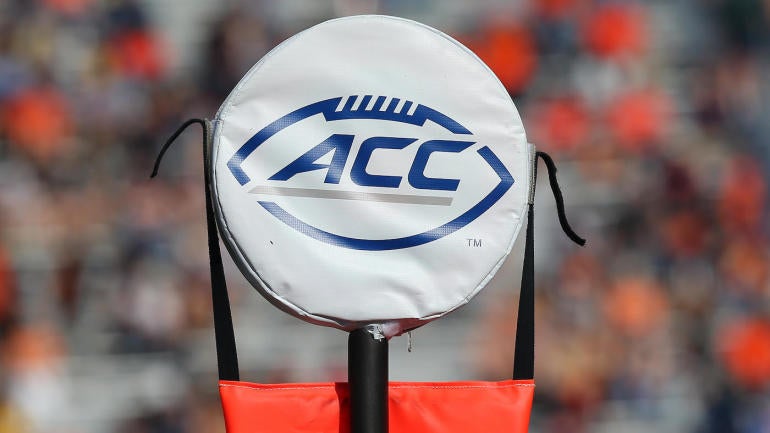
ACC presidents will hold a previously postponed meeting regarding potential conference expansion on Friday morning, CBS Sports' Dennis Dodd confirms. Conference presidents were set to discuss the matter Monday, but the meeting was postponed after a shooting that occurred at the University of North Carolina at Chapel Hill that same day.
The ACC is examining whether to add Stanford, Cal and SMU, which would bring the conference to 18 members total for football counting Notre Dame's status as a partial member. Stanford, Cal and SMU have been linked to the ACC as expansion targets for the better part of the last month. Momentum for expansion has varied during that stretch, though talks on adding the schools at a discounted price have picked back up recently.
Adding the three schools could bring an additional $72 million annually to the ACC, with Cal and Stanford accepting limited revenue shares -- believed to be around 30% or roughly $8 million per school. SMU, backed by its wealthy donor base, would forgo distribution for at least seven years in order to have a seat at the table in the power conference landscape.
The ACC requires at least 12 of 15 member schools to vote "yes" in order for any single expansion candidate to be admitted into the conference. Only four league members -- Clemson, Florida State, North Carolina and NC State -- were previously against expansion, per Yahoo! Sports, meaning that only one dissenting school's vote would need to be flipped in order for expansion to receive the green light.
The potential for ACC expansion comes after several of the league's prominent members had discussed concern over the growing financial gap between the Big Ten and SEC -- both of which inked lucrative new media rights deals within the past three years -- as the college football landscape continues to evolve. Leadership at Florida State has been particularly vocal on that front with some university trustees contemplating an eventual break from the ACC during a public meeting earlier in August.
The ACC is locked into a contract with ESPN that runs through 2036. The conference distributed roughly $40 million per school for the 2022 calendar year, though escalators could increase that number in the future.
Should the ACC vote in favor of expansion, it would become the latest conference to grow during the current cycle of realignment. From late July to early August, the Big 12 and Big Ten each added more schools. Those moves resulted in six more Pac-12 schools leaving the league on the heels of USC and UCLA announcing their impending departure to the Big Ten last summer. Colorado, Arizona, Arizona State and Utah were added by the Big 12; Oregon and Washington accepted invitations into the Big Ten. All of those moves take effect in 2024.
Movement on the ACC's end could also factor into ongoing discussions regarding the College Football Playoff format as it prepares to expand from four teams to 12 beginning in the 2024 season. A model in which the field would feature the six highest-ranked conference champions plus six at-larges was previously agreed upon, but realignment could throw a wrench in those plans. CFP commissioners held a meeting in Dallas on Wednesday, and there is momentum to shift to a model that guarantees access for only the five highest-ranked champions plus seven at-large teams, according to Yahoo Sports.
Stanford and Cal currently account for two of four remaining Pac-12 schools in addition to Oregon State and Washington State. SMU is currently a member of the American Athletic Conference. Should SMU be granted membership into the ACC, it would mark the Mustangs' return to a major conference for the first time since its run in the Southwest Conference, which played its final season of football during the 1995-96 school year before dissolving.
















